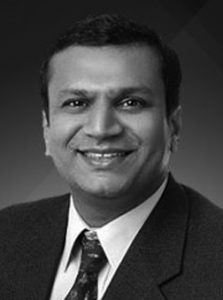
Narayan Ramachandran
Chairman, InKlude Labs
The electoral statistics related to the Bharatiya Janata Party (BJP)-led National Democratic Alliance’s win are only just being parsed, but they are impressive—from a 7-percentage-point increase in vote share overall for the BJP to a victory by over 200,000 votes each in 45 constituencies in Uttar Pradesh (despite opposition unity). A mandate this strong grants the new government an opportunity to focus on a structural, as opposed to a project-based, economic agenda. Here are the priorities it must go after.
Statistics: Even as he embarks on his new term, Prime Minister Narendra Modi must commit to making India’s economic statistics modern, world-class and immune to political interference. The first thing about “fixing” the economy is to measure it right and without “bias”. During its first term, this government distinguished itself for all the wrong reasons related to jerry-rigging statistics. Hopefully, that will no longer be considered necessary.
India is home to many truly world-class statisticians, and this is one area where we could use significant lateral entry to upgrade our talent. The day after election results, the ministry of statistics announced the merger of the Central Statistics Office and National Sample Survey Office into a single entity, the National Statistical Office (NSO). I suggest that the new NSO organizes itself into high-frequency (weekly or daily), medium-term (quarterly) and longer-term (annual) specialist units and collects, parses and disseminates data related to employment, inflation, growth, earnings and productivity.
A powerful statement of this commitment to de-politicize economic statistics will be to have the NSO report to Parliament. An apolitical, high-quality NSO will serve as a strong foundation as we go about necessary structural reforms.
Employment: Jobs are the most significant economic and political priority for the coming decade. The two major foundational pillars for job growth for the medium and long term are (1) an industrial-strength apprentice and vocational training system in India and (2) a quantum jump in the quality of our school education. India’s vocational streaming and training system delivered primarily through a chain of Industrial Training Institutes (ITI) is broken. One way to cement his legacy of job creation would be for Modi to completely revamp this broken system—from streaming high-school youth into the vocational path to improving the quality and relevance of vocational education, and also creating an apprentice supply chain from these institutes into the workforce.
Beyond this long-term fix, it is time for India’s “Green New Deal”. This New Deal should focus on employment generation for environmentally sustainable infrastructure projects funded by the government. Resources for this New Deal can only come from higher productivity and structural GDP growth, so undertaking structural reforms can become a self-fulfilling project.
Banking reform: Structural reforms require three forms of capital—talent/governance, equity and debt. Talent and governance must come from society at large in such a manner that it is held accountable through regulatory fairness, competitive dynamics and market transparency. Equity capital comes when the storyline and delivery on economic growth and productivity match. Debt capital comes from the fixed-income capital markets and from banks. While all three streams need improvement, credit from banks and public sector bank governance are the weakest links. The government cannot fully fix the problems of public sector banks with capital if it is not accompanied by governance reforms. That would be akin to cleaning up a lake but keeping the sewage lines open.
The government must immediately transfer its ownership in public sector banks to an empowered agency in the form of an exchange traded fund (ETF). This new agency must be empowered to delink these banks from all forms of governmental interference. To show its commitment to go down this direction, the government must fully privatize IDBI Bank—the only public sector bank set up as a private limited company. In a little noticed move, the Reserve Bank of India (RBI) reclassified IDBI in March this year as a “private sector bank” since it is now majority-owned by the Life Insurance Corporation of India (which itself is a government-owned entity). The government should complete its full transfer to private ownership. Thereafter, with the advantage of time and an electoral majority, the centre should insist on accountability in the governance of all public sector banks.
Agriculture reform: For decades, Indian governments have largely failed in their attempt to improve agricultural productivity and provide alternative occupational paths for rural households. With his electoral mandate, Modi can focus on structural fixes that include access to better seeds and technology, drip irrigation and crop planning for the farmer, an easier path from farms to markets for products, a steadier offtake of farm products and a reduction in middleman costs. As already envisaged, a direct cash transfer to the marginal farmer can and should cushion this reform process.
Modi and the BJP have an unprecedented mandate to transform India into a middle-income country with widely inclusive prosperity. Let’s hope they seize it.
PS “The future depends on what we do today,” said Mahatma Gandhi.





